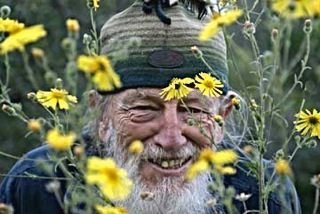
Few residents of Fresno County earn freestanding obituaries in the Washington Post, as did George Ballis when he died last month. That obit recounted an interesting but odd career, with moments of pronounced prominence—high school football standout, photographer of social justice stars (like Martin Luther King, Jr., and Cesar Chavez), collaborator on iconic works of art (such as I Am Joaquin) and instigator of a historic legal challenge to the water thieves of the San Joaquin Valley that made its way to the halls of Congress.
But while those pieces of his biography correctly indicate a greatness in the man of skill, wisdom, vision and leadership, in important ways his life was incomplete. What was missing in him or his work that he never got the recognition he deserved (and wanted)? Why did he never (as I for one always expected he would) receive a MacArthur “Genius Award”? Why did his remarkable film retrospective go under-publicized and under-attended? Why did the land barons who he proved to have broken the law evade justice and then simply buy changes in the legislation so they could continue their monopolistic abuses? Questions of this kind bedeviled George even up through his final illness.
So the greatness of the Elfie I knew came not in triumphant success and public recognition, but became evident instead in the scope and quality of his life—and death: in his partnerships, his commitments, the breadth and depth of his vision, the undimmed youthfulness and adventuresomeness of his spirit. He was in some respects beaten by the benightedness of our species, our intransigent greed for power and comfort and superiority. He came to dead-ends and was forced over and over to reinvent himself and his work. But to those who would deal with him honestly and wholeheartedly, he would give undying loyalty. As much as he was a champion to his second wife, Maia, to his family and his colleagues, he was also like the ever-faithful dog who puts his superior senses completely at your disposal. He was your ally.
In the course of my work with Elfie—both as part of his Sun Mt. “tribal” work and as part of Fresno’s progressive community—I was implicated in a few bitter confrontations with him. We both knew they were situational, not personal. Even in disagreement, he confirmed for me, in his daily living, that the great virtues are fidelity, open-heartedness and the humility of respecting others. Experiencing those qualities in him evoked and strengthened them in me, and in our associates.
To Elfie, the interconnectedness we live in was embodied in the phrase “Big Mamma”: immense beyond our reckoning, fecund and generous, loving and intelligent and forgiving. But Big Mamma does not martyr herself for her children. Big Mamma says, “Enough is enough, there are limits and consequences to what you do, and you’d better learn them.” Big Mamma does not punish, but she doesn’t sacrifice the whole for the part.
Elfie loved and revered Big Mamma. He accepted her hard lessons that, as much as she cherished him, she would not (perhaps could not) cater to his wishes: The world is what it is and we cannot change it by willfulness or violence. But Elfie’s life demonstrated that we can, by exercising determination and creativity and love, make change possible.
Being allowed to participate in Elfie’s process of learning to understand and live in accordance with Big Mamma’s laws was Elfie’s best gift to me. It is a legacy reflected dimly in his “accomplish-ments,” but which live on much more fully in the so-many people he subtly touched and firmly hugged. His “Endgame Party,” held when death seemed imminent a year ago, gave the people who attended a chance to reflect on the particularity of his gifts to them. But it was so like the Elf to live on another whole year just to show how little we know of life and death, and to prove the strength of the spirit that abides in and works through us.
